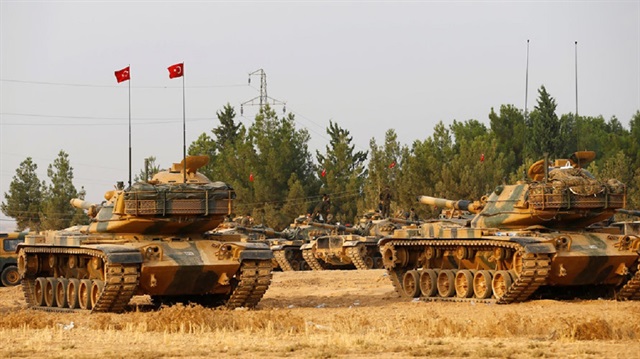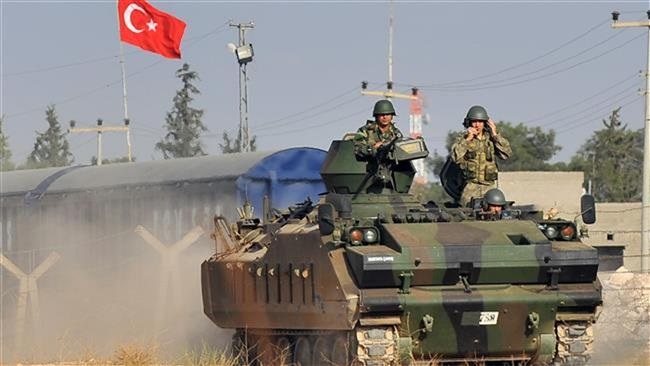
Turkish troops will be stationed at strategic points in Idlib and prevent the terror corridor in Syria’s north
Critical decisions regarding the fate of Syria’s opposition-held Idlib were made during the sixth round of Syria peace talks, which began on Sept. 14, aimed at ending the Syria conflict in Kazakhstan's capital Astana.
In the province where the U.S. is preparing to attack with the excuse of al-Qaeda, Turkey, Russia and Iran-backed forces will provide security.
The areas to be controlled by Turkish troops in Idlib, who have been preparing for an operation in the area for an extended period of time, became clear in Astana. Turkish troops will pass through Hatay’s Yayladağı and Reyhanlı districts and enter 35 to 50 kilometers into Idlib in the operation due to start this month.
The area of the operation, which will be at least 35 kilometers wide and 130 kilometers long, is the western part of Idlib overlooking Hatay. In the map, which is divided into three regions, the part belonging to the Turkish troops and the Free Syrian Army is the third region.
Turkish troops will ensure the safety and security of Idlib’s population of 2 million that has been exposed to the horrors of civil war and massacres. The operation can be launched at any time.
The number of troops taking part in the operation along with the Free Syrian Army (FSA) will reach 25,000. The forces that will trek through Jisr al-Shughur in Idlib’s south and Dar az-Izza in Idlib’s west will control close to 5,000 square kilometers.
The area controlled by the Turkish Armed Forces (TAF) will include the Taftanaz Airport and the highest mountain of the region, Jabal Arbain, as well as other strategic points.
Turkish troops will be able to monitor Kurdistan Workers’ Party (PKK) terrorists in Afrin and terror formations in Latakia, as they will be positioned in strategic points in Idlib and Aleppo.
Among the regions that will be controlled by Turkey are points such as Jabal Arbain, Taftanaz, Jisr al-Shughur, Ariha, Maarat al-Numaan, and Khan Sheikhoun.

The head of the Turkish delegation, Deputy Undersecretary of the Ministry of Foreign Affairs Sedat Önal, chaired meetings between Turkey, Russia and Iran’s delegations at the Astana summit in Kazakhstan's capital.
At the head of the Russian delegation is President Vladimir Putin’s Syria Representative Alexander Lavrentiev, and Deputy Foreign Minister Hussein Cabiri Ensari is leading the Iranian team.
David M. Satterfield represented the U.S. as an observer at the meeting. It is believed that the most important resolutions for the formation of de-escalation zones in Syria will be taken at this session.
According to the agreement, the zones, in which acts of aggression are nominally prohibited, would cover the city of Idlib and certain parts of Latakia, Homs, Aleppo and Hama provinces, along with Damascus, Eastern Ghouta, Daraa and Quneitra.
Syria has been locked in a vicious civil war since early 2011, when the Assad regime cracked down on pro-democracy protests. Since then, more than 250,000 people have been killed and in excess of 10 million displaced, according to the UN.





